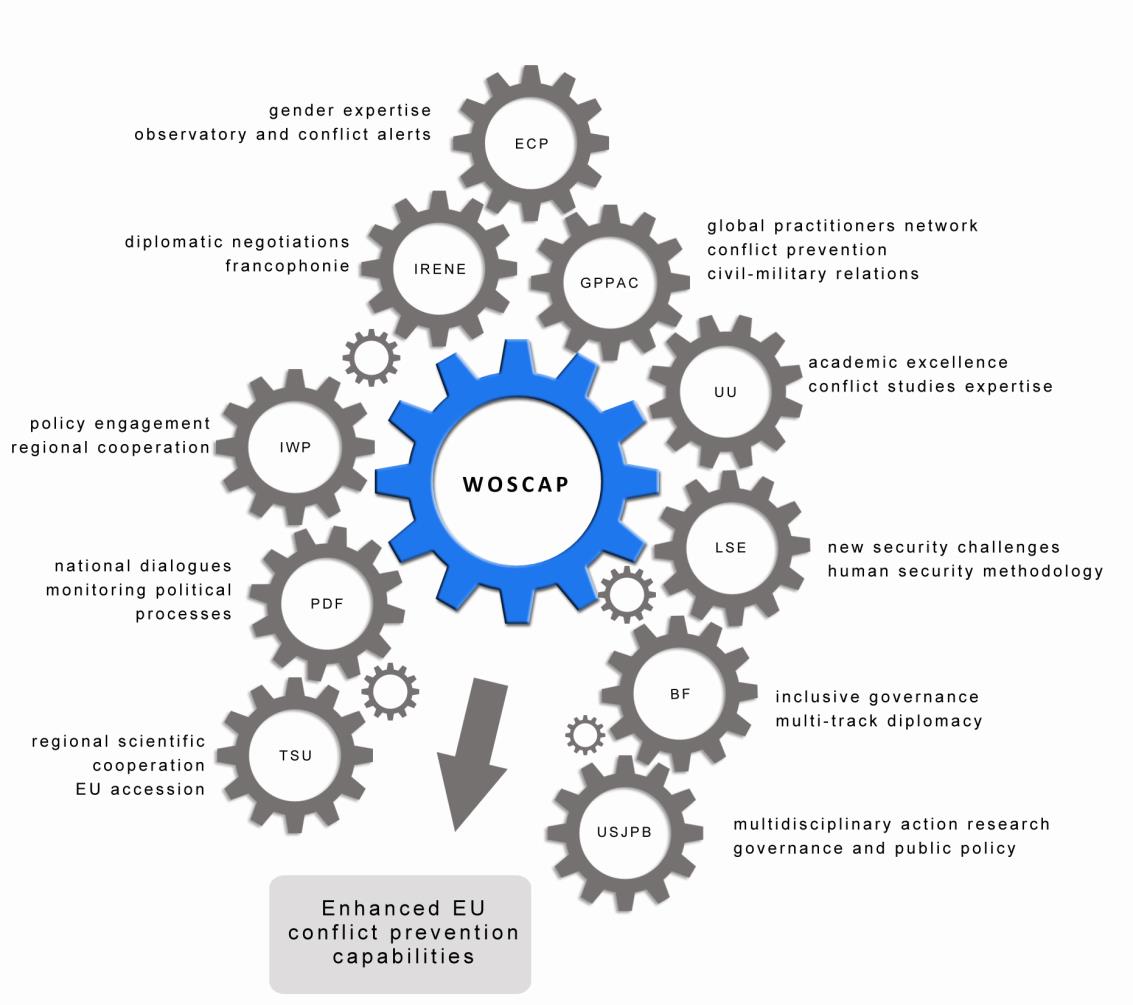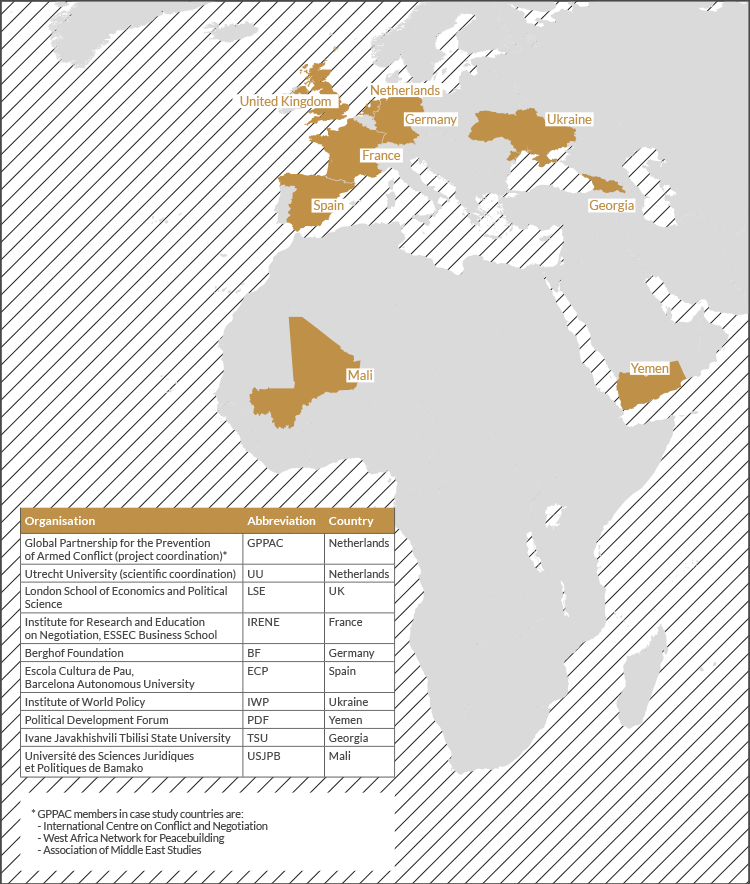PARTNERS
Consortium as a whole
The WOSCAP consortium brings together the expertise of specialised academic institutions with substantial track records working on conflict and peacebuilding issues over the past decade, with the experience of peacebuilding practitioners and local universities. It consists of ten institutional partners, including five leading academic institutions in Europe and four in case study countries, and a global network of conflict prevention and peacebuilding practitioners. The project builds on existing initiatives and areas of expertise of the respective partners.
Together, the consortium members have access to a wide range of academic and practitioner's networks, building on strong ties with other academic institutions and a close engagement with governmental actors/the diplomatic community, including the EEAS and key regional organisations.
At the EU level, the effective policy engagement and dissemination will be enhanced by the Consortium's presence in several key member states and active membership in the European Peacebuilding Liaison Office (EPLO) network. Moreover, institutions that are members of the GPPAC network from the case study countries will participate as associates, supporting the project with a wide pool of experienced practitioners in the area of conflict prevention.
Consortium Partners
| Berghof Foundation | BF | Germany |
| Global Partnership for the Prevention of Armed Conflict (coordination) | GPPAC | Netherlands |
| Escola Cultura de Pau, Barcelona Autonomous University | ECP | Spain |
| Institute for Research and Education on Negotiation, ESSEC Business School | IRENE | France |
| Institute of World Policy | IWP | Ukraine |
| London School of Economics and Political Science | LSE | UK |
| Political Development Forum | Yemen | |
| Ivane Javakhishvili Tbilisi State University | TSU | Georgia |
| Université des Sciences Juridiques et Politiques de Bamako | USJPB | Mali |
| Utrecht University (academic lead) | UU | Netherlands |
GPPAC members in case study countries:
| International Centre on Conflict and Negotiation | ICCN | Georgia |
| West Africa Network for Peacebuilding | WANEP | Mali |
| Association of Middle East Studies | AMES | Ukraine |
Organisations that we work with /associated with the project
| European Peacebuilding Liaison Office (EPLO) |
| BuildUp |
Consortium partners' complementarities

The six work packages will operationalise the project's objectives, ensuring the effective complementarity of the various competences of each consortium partner.
In the field, a bottom-up methodology means research will follow a participative, dialogic approach, engaging local communities and practitioners on the ground. Research institutions of local case study countries will lead on the field research, and partner with local peacebuilding practitioners and key policymakers, ensuring policy involvement at the operational level. At the EU level, the effective policy engagement and dissemination will be enhanced by the consortium's presence in several key member states (Germany, France, the UK, The Netherlands and Spain).
Finally, the composition of the consortium brings together the expertise of specialised academic institutions with the practical experience of peacebuilding practitioners. The project will place great importance on the participation of a wide range of stakeholders in peer reviewing the evidence base of the project, and the development of a community of practice to evaluate and implement the findings and recommendations the project expects to deliver.
 The map above shows the locations of the WOSCAP consortium partners.
The map above shows the locations of the WOSCAP consortium partners.
